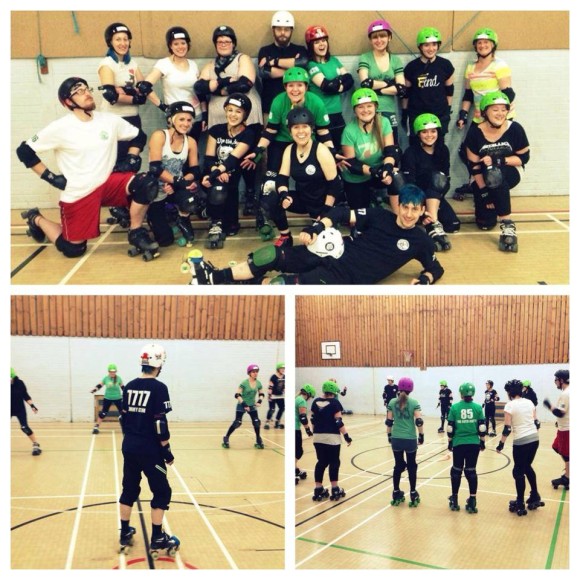Want to increase your members but don’t know where to start? Here are some points to consider when hosting a beginners program.

- DO establish your requirements:
The team’s requirements determine how you run a program. If you are well established, you may expect individuals to turn up and demonstrate various skating skills from the off set.NRG didn’t have a full bouting team when we set up the beginner’s course so we welcomed all abilities, structured a twelve week intense lesson plan and supplied hire kit; we also learnt very quickly that the maximum class size we could accommodate given our resources was twenty.
- DO outline your expectations:
We like to give beginners an information pack well in advance of the start date. We include points such as directions to training venues, details on rules requirements and testing and some information on kit and prices. We require our members to be committed to training, abide by our Code of Conduct and contribute towards the running of the team in some way.Most importantly, we don’t pretend to our beginners that it is going to be easy, minimum skills are just that- the minimum requirements for skating with NRG; those skating in advanced sessions are expected to display much higher competencies than the min skills criteria and you should never compromise on safety.
- DO plan and structure:
For every session we have a teaching plan, it allows us to stay focused.
We also set a time limit on how long individuals can borrow kit for and ask them to join as a member by week eight.Testing can be time consuming so we set specific dates for practical and written evaluation. - But DON’T be afraid to be flexible:
You may have planned the teaching down to every detail but you will find some reworking essential, especially in the early days. No two intakes are the same; some beginners will sail through while others need more encouragement. Be patient and try to provide some 1:1 teaching; the weakest skaters often go on to become your sharpest tactical asset.Often there will be a drop off a few weeks into the course, for this reason you may want to have a waiting list so that you can open spots up in the early days of teaching.
At the end of the program you should also try to get feedback and review the process so that you can include improvements if and when the cycle begins again. - DO draw on the expertise of the team.
Even the smallest league has a wealth of expertise when it comes to marketing, teaching, managing, public speaking etc; pair the teachers with the technical experts or the seasoned player with the travel team’s rookie and let them deliver the program. - DON’T waste energy when recruiting.
Roller Derby is growing at a rapid pace and if you’re new to recruiting you’ll probably find that a note on your website, a facebook event page and the odd poster locally will generate enough interest in the short term.If you feel that you’ve exhausted these avenues, or there are a number of teams in a small area competing for new members, you will want carry out a more focused recruitment. Get members to ask around and make inquiries in other sporting areas; send emails or letters to potential skaters and encourage them to attend one of your bouts, or another local team’s bout, to see what it’s all about.
